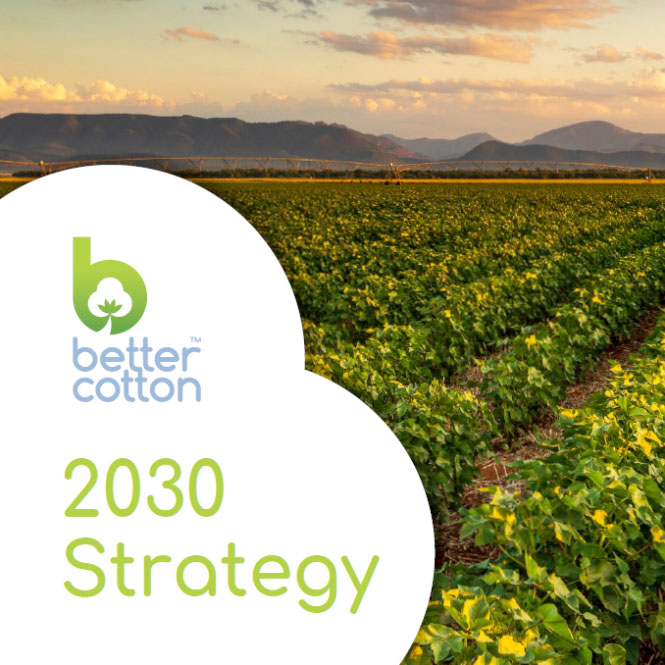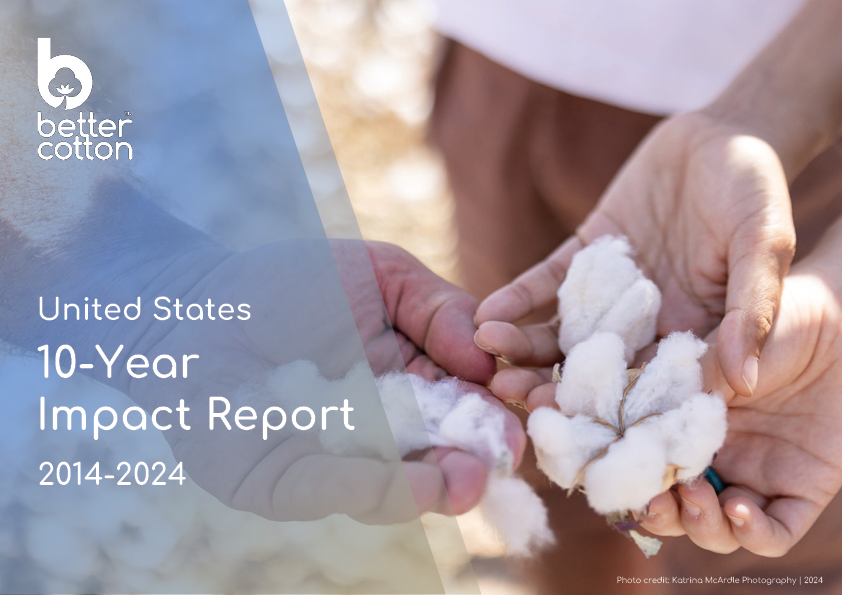- Who we are
- What we do
In just over 10 years we have become the world’s largest cotton sustainability programme. Our mission: to help cotton communities survive and thrive, while protecting and restoring the environment.
- Where we grow
Better Cotton is grown in 22 countries around the world and accounts for 22% of global cotton production. In the 2022-23 cotton season, 2.13 million licensed Better Cotton Farmers grew 5.47 million tonnes of Better Cotton.
- Our impact
- Membership
Today Better Cotton has more than 2,700 members, reflecting the breadth and diversity of the industry. Members of a global community that understands the mutual benefits of sustainable cotton farming. The moment you join, you become part of this too.
- Associate Membership
- Civil Society Membership
- Producer Organisation Membership
- Retailer and Brand Membership
- Supplier and Manufacturer Membership
- Find Members
- Member Monitoring
- Better Cotton Platform
- myBetterCotton
- Resources – Better Cotton Conference 2022
- Complaints
- Whistleblowing
- Safeguarding
- Get Involved in the Better Cotton Programme
- Thank you for contacting us
- Better Cotton’s Data Privacy Policy
- Log in
- Members’ Area
- Request for Proposals
- Better Cotton Cookie Policy
- Web Reference
- Measuring Cotton Consumption
- How to Implement the Chain of Custody Standard
- Resources – Better Cotton Conference 2023
- Certification Bodies Old
- Latest
- Sourcing
- Latest
The founding premise of Better Cotton is that a healthy sustainable future for cotton and the people that farm it is in the interests of everyone connected with it.
Let us help you find what you’re looking for
Results for {phrase} ({results_count} of {results_count_total})Displaying {results_count} results of {results_count_total}
13.11.13 Ecotextile News
www.ecotextile.com
GENEVA – A new report from the Better Cotton Initiative’s Fast Track Program, which includes clothing retailers, Adidas, H&M and Walmart, has outlined the association’s aim to collaborate with Chinese government to develop new good agricultural practices and a greater understanding of China’s cotton policy.
Aiming to address the sustainability challenges faced in the production of cotton and work to mainstream sustainable cotton, retailers involved in the Better Cotton Initiative’s (BCI) Better Cotton Fast Track Program also include Marks and Spencer, Levi Strauss and VF Corporation.
The Better Cotton Fast Track Program End Year Report 2012, From field to fashion, report looks the impact of the fast track program worldwide, including the BCFTP funded ABRAPA (Associação Brasileira dos Produtores de Algodão), project in Brazil covering over 210,000 acres and 100 farmers,20 projects in India reaching more than 90,000 workers and farmers, and an investment of EU 390 000 made in China.
The recent distortion of the market by China’s national cotton reserve program has been the biggest challenge for retail brands to procure Better Cotton from Chinese suppliers, the report claims, with thecountry cultivating around 25 per cent of the total global cotton production, according to BCI figures.
”BCI is actively seeking collaboration with central and local government (initially by engaging with the Ministry of Agriculture’s Research Centre for the Rural Economy to develop the China Good Agricultural Practices )… Developing an understanding of China’s cotton policy and exploring solutions is clearly indispensable to all stakeholders in the cotton supply chain,” the report states.
2012 was the first year Better Cotton was licensed and produced in China, with 32,000 megatonnes(MT) of lint licensed as Better Cotton, from which 29,000 MT was taken up by ginners.
Looking forward, the report states the BCI is aiming to set targets for brands to deliver on their public commitments in the coming years, whilst ”looking to evolve beyond sustainability departments of apparel companies get entrenched in their operations and commercial business.”


